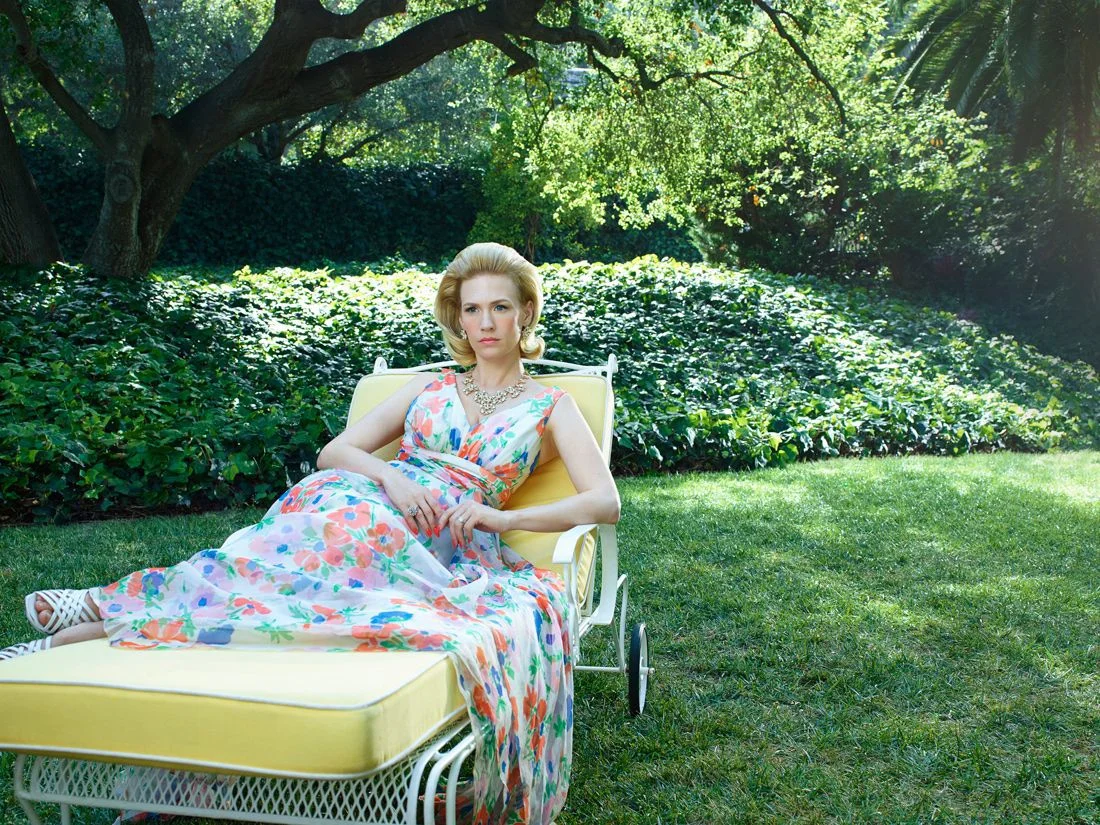How 'Mad Men' fought for its place on TV
Eight years after Mad Men pervaded popular culture, audiences finally prepare to say goodbye to the Emmy- and Golden Globe-winning series that helped launch a new golden era in television.
It is hard to believe that when Matthew Weiner started pitching his new show, it was considered an impossible sell. It had no aliens, no complicated sci-fi mysteries to unravel, no murderers to catch.
SEE ALSO: 'Mad Men' review: Prepare to be knocked slightly off-kilter by 'Severance'
To sum up the plotlines of Mad Men would have been pointless. The slow-burn series, which centers on Donald Draper (Jon Hamm), an all-but-perfect ad man with a hard-knock past, is rarely about the big twist or a cliffhanger. It is more so a study of happiness — or lack thereof — and how despite great historical and cultural shifts, personal growth is often stagnant.
Even those involved in making the pilot doubted Mad Men would succeed.
"It wasn't like anything I'd read before," recalls January Jones, who plays Betty Draper on the AMC series. "I honestly didn't think it would ever get picked up. It was a gamble. I basically did a handshake agreement with Matt that I would have a character if we ever got picked up. And it was a year before we shot the second episode. So I had kind of forgotten about it."
When January Jones, seen here in a promotional photo, signed onto 'Mad Men' she had doubts about whether the show could last, given the TV climate at the time.
The television landscape when Mad Men debuted in 2007 was hardly diverse. The two most-watched shows, American Idol and Dancing with the Stars, held five of the top 10 spots in the Nielsen ratings. Network procedurals like the Law & Order and CSI franchises reigned on CBS and NBC, while the quirky case-of-the-week solver House added a little spice to an otherwise predictable formula on FOX. Meanwhile, Lost had lost its charm, and Heroes was causing somewhat of a splash.
The more character-driven drama was on pay cable, where on HBO's Six Feet Under had explored the humor in mortality, Big Love was bringing humanity to polygamy and the critically acclaimed mobsters on The Sopranos were about to bid their audience adieu.
Mad Men launched on AMC to a conservative 1.2 million viewers.
Its pacing was far more tranquil than anything on the air. It wasn't regularly violent, had no nudity or profanity and no household name actors. And, yet, critics immediately went nuts for it.
The show won an Emmy for Best Drama in its first year and three years thereafter.
Weiner often gets credited for changing television, but the creator himself claims precedent was set before he entered the arena.
Jon Hamm, creator Matthew Weiner and Robert Morse, who played Bertram Cooper, arrive to the 'Mad Men' Black and Red Ball held on March 25, 2015, in celebration of the show's conclusion.
"I felt that The Sopranos, being so artistically magnificent and making billions of dollars for people, was what changed the TV business in the most recent past," he says.
But Weiner did become the flag-bearer for auteurship in television, quickly reaching a level of notoriety that in the TV world, at that time, had only been achieved by a precious few: Aaron Sorkin, John Wells, Davids Milch, Chase and Simon.
When it was time to re-up his contract in 2010, Weiner was front and center of some well-publicized negotiations that in the end gave him seemingly unprecedented control over content and business decisions.
Mad Men may not have been the first character study to air on television, but its impact on basic cable and the influx of original scripted content that it opened the door for, cannot be downplayed.
"[AMC] had two hours of programming that was not old movies and infomercials for the first two seasons we were there," says Weiner. "We were definitely part of the willingness on their part to go with not conventionally commercial material, and put someone not particularly experienced in charge and allow us to do this incredibly weird show."
As tends to be the trend, broadcast network executives tried to imitate the winning formula with short-lived period dramas like The Playboy Club and Pan Am. Weiner was neither surprised that others tried to improve on his creation, nor the fact that no one appeared to succeed.
Over the course of the series, Peggy, right, turned into as much of a star character as Don.
"They're always like, 'We're going to do the popular version of Mad Men, or 'We're going to do the network version of it,' and they don't really understand what it is," he says. "I don't know that I do [either], but I do know that the show has no genre. It is a period piece, but everyone is recognizable as being around right now."
In the years since Mad Men debuted the television landscape has changed altogether.
The procedurals and live competition shows still stake their claim, but whereas compelling dramas could be counted on one hand before, there are — if the slew of award season snubs are any indication — almost too many excellent scripted shows.
Awards ceremonies have in recent years been dominated by shows like Breaking Bad, Boardwalk Empire, The Good Wife, The Americans and Masters of Sex — none of them ratings juggernauts, all of them auteur-driven studies of character.
In Mad Men's seven seasons protagonist Don Draper has evolved from a man trying to build the perfect life to a man asking, "Is this all there is?"
Whether sunnier times are ahead for Don remains to be seen, but in the meantime, one thing is quite clear: Thanks to Mad Men, television is certainly better than ever.



